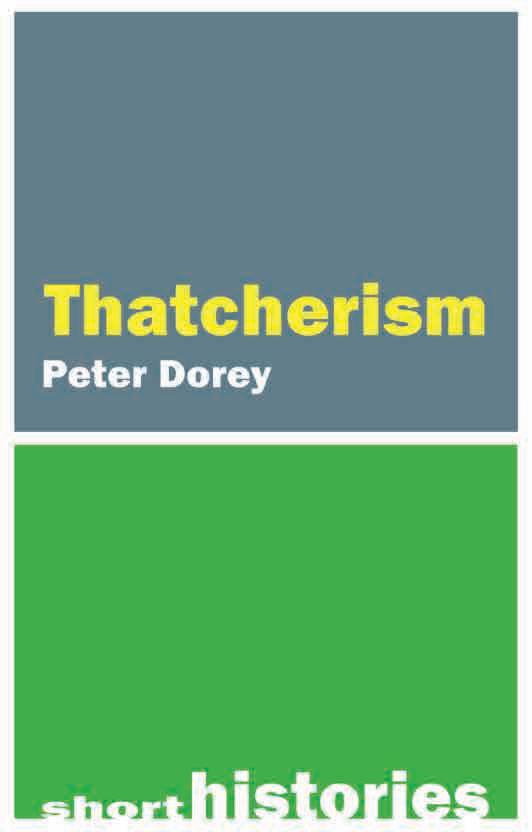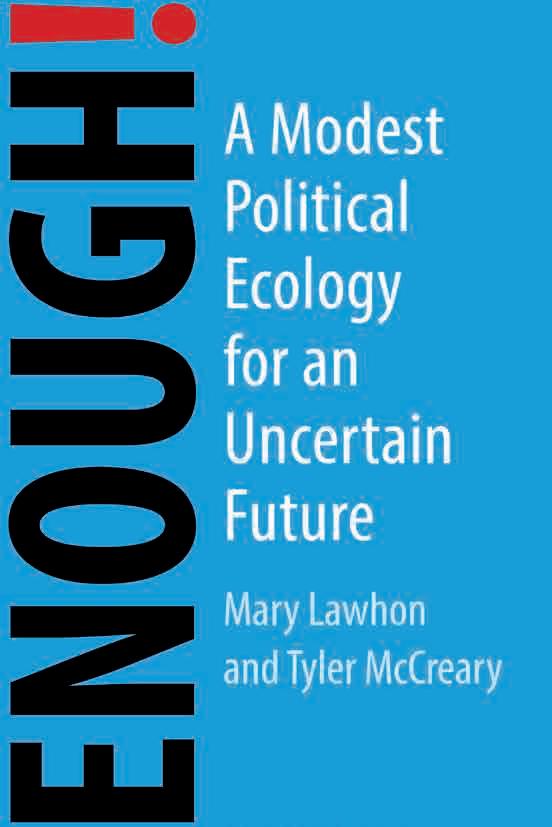
1 minute read
Thatcherism
Peter Dorey
“Dorey’s superbly researched account is a concise, full 360-degree study of the inexorable rise of Thatcherism and its erosion of traditional Conservatism. He shows clearly and crisply why her ideological legacy remains so important to the Conservative Party and to anyone who studies it.” – Louise Thompson, University of
Advertisement
Manchester
“An outstanding book that deserves to be widely read. Pete Dorey has expertly combined historical and political analysis to provide a definitive and highly engaging account of the complexities and contradictions of the Thatcher project. His analysis is consistently sharp and insightful and helps us make better sense of the character and legacy of one of the most important and enduring political projects of our time.”
– Peter Kerr, University of Birmingham
Peter Dorey offers a lively analysis of how Thatcherism became an ideology for politics to conjure with, its relationship with its eponymous leader and with the Conservative Party, as well as the long-term implications for the British people. He argues that the radical modernization of Britain that started under Thatcher’s leadership in the 1980s has created the conditions that have led to the polarization of British society today; a process that was profoundly unconservative in its values and approach, destabilizing institutions which Conservatives once deemed sacrosanct, and replacing continuity and solidity with constant change and competition.
MARCH 2023
PB £18.99 978-1-78821-548-0
HB £75.00 978-1-78821-547-3
200 pages | 216 x 138 mm Short Histories
Peter Dorey is Professor of British Politics at Cardiff University. He has published widely on British Conservatism and the Conservative Party.
NOVEMBER 2023
PB £19.99 978-1-78821- 636-4
HB £60.00 978-1-78821-635-7
192 pages | 234 x 156mm
Flashpoints
Alexander Titov is Lecturer in Modern European History at Queen’s University Belfast.
Russia
Alexander Titov
Russia has emerged as “trouble-maker in chief” of international politics in recent years and is now the greatest current threat to global stability and peace. Its invasion of Ukraine in February 2022 has cemented its position of pariah state and Putin as persona non grata in the liberal international community.
To understand recent events, Alexander Titov examines the Putin regime, how it operates, its ideology, its control of the media, its assertive domestic policy and how this all meshes to underpin its aggressive foreign policy regime. He sets the current conflict in the context of Russia’s troubled neighbourhood strategies in Chechnya, Georgia and the recurring theme of Russian nationalism.

This is a timely and insightful analysis for students and researchers in international relations and global politics.
Contents
1. Introduction
2. Putin’s domestic politics
3. Great Power politics
4. Cybersecurity, information war and Russian threat to western democracy
5. Energy and the environment
6. Conclusion










